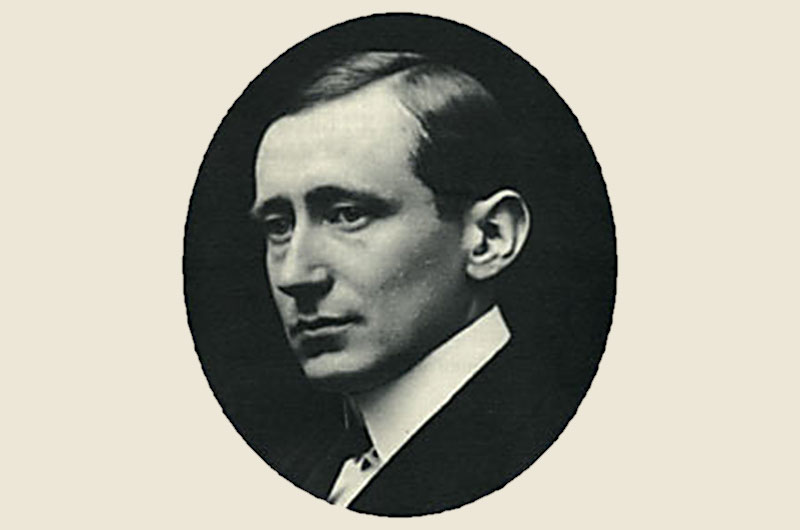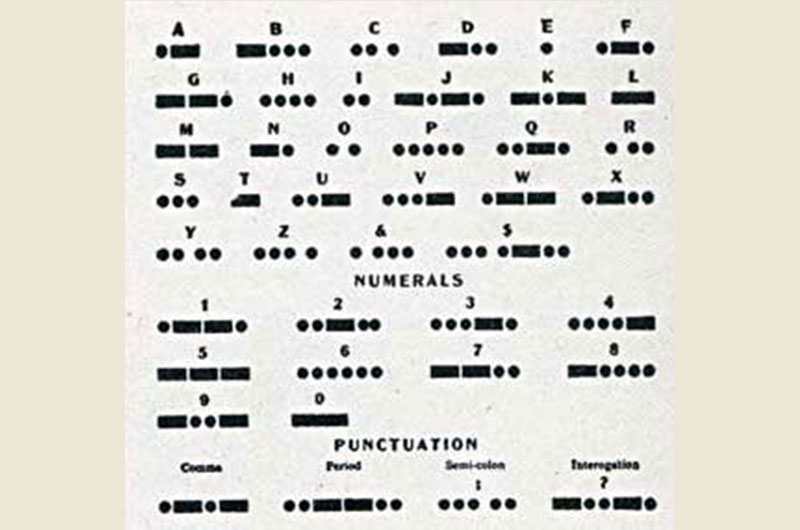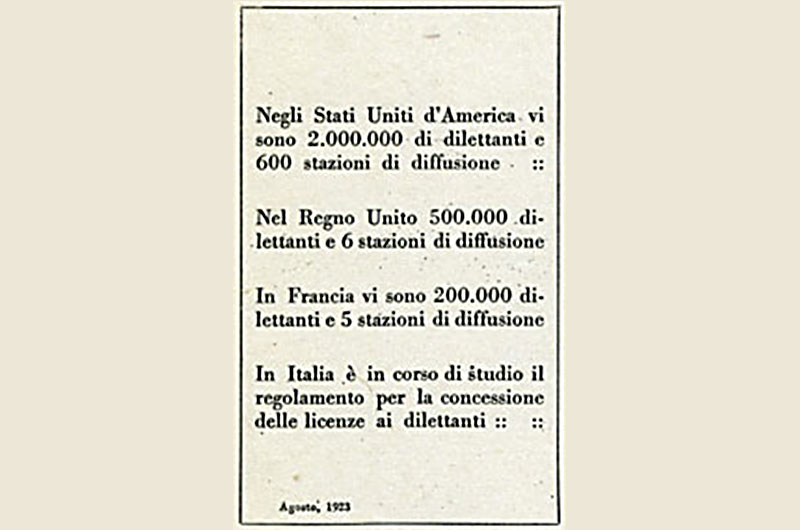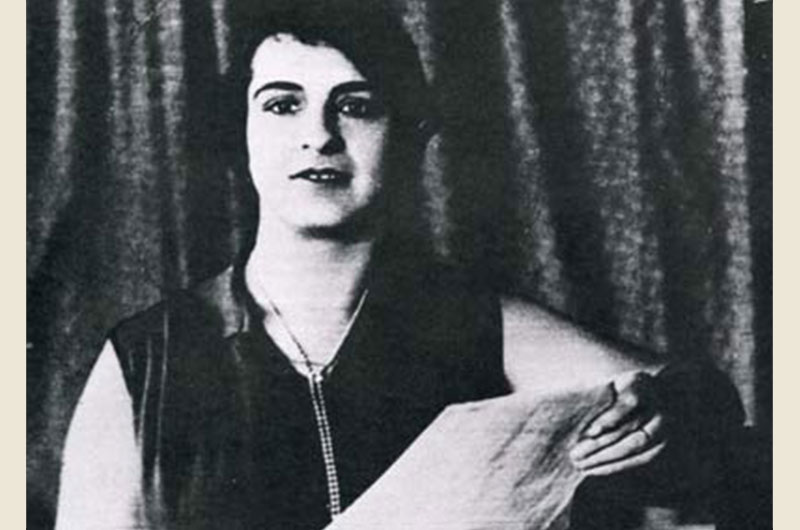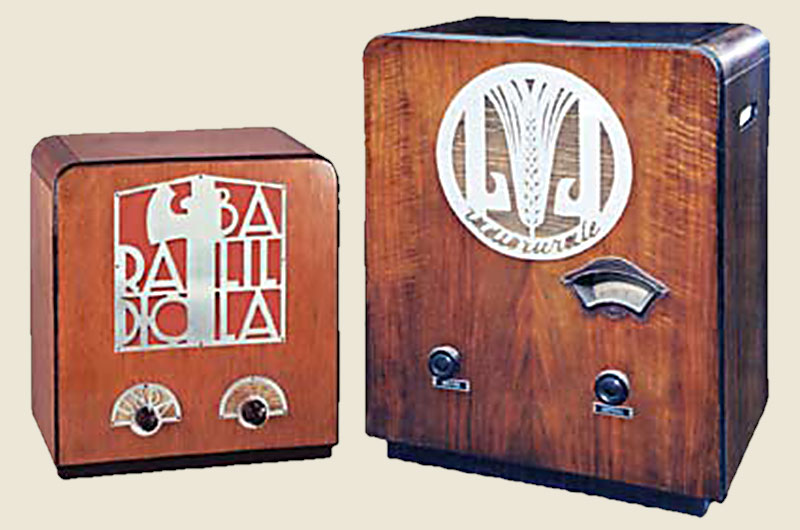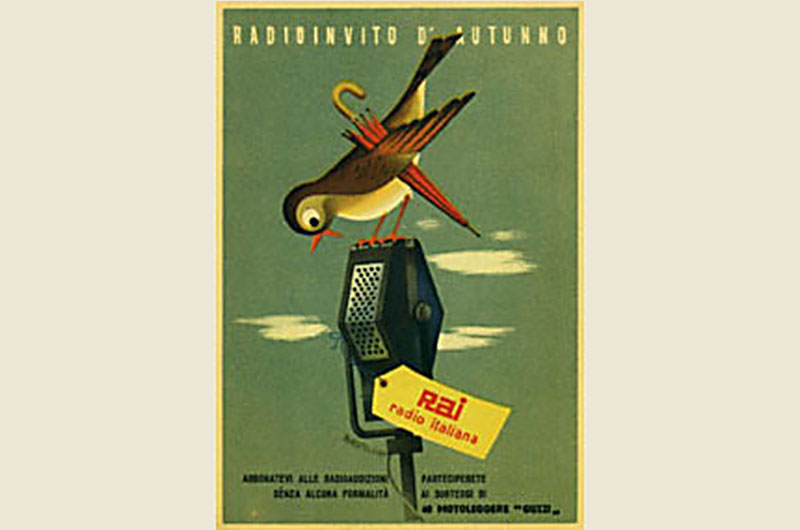Brief history of the Wireless
by Mosè Battocchio – Translated by Nicolò Rubini and Lisa Glauber.
The wireless was born in 1895 as a result of research which young Marconi was conducting to communicate from a distance by means of Hertzian radio wave, a theory put forward by Maxwell already in 1873 and demonstrated by Hertz in 1887. Marconi’s intuition marked the beginnings of a new era, the era of communication. Event followed event in rapid succession, overcoming bigger and bigger distances and obstacles: in 1901 Marconi succeeded in connecting the old and the new world through ether, in fact overcoming the earth’s curvature, which everyone at the time thought impossible to do and achieved a connection between Cornwall (GB) and the island of St. John in Newfoundland (Canada).</br><br>Since that time, the wireless became the most direct line of connection between the most distant parts of the world and was a great help to the various means of transportation, ships and airplanes. The air-waves were used to convey all kinds of information, from S.O.S requests to political, social and entertainment news. </br><br>The non-stop research and development of this new discovery transformed the radio messages, once transmitted through the Morse code, to verbal communications, producing voices and sounds. In 1909 Marconi received the Nobel prize for physics.</br><br>In 1920 Westinghouse, in view of the upcoming elections for the 29th president of the United States, which will see the victory of Warren Harding, the first radio transmissions began, allowing the Americans to follow the results live. From this beginning, in a very short period of time, radio broadcasting won the hearts of the listeners who increased innumbers rapidly, giving a big boost to the radio industry.</br><br>The phenomenon of listening to the radio subsequently took hold in Europe as well, as in France in 1921, for the celebrations in honour of Edouard Branly (1844-1941) a French scientist considered the father of the radio. The first radio equipment was installed on top of the Eiffel Tower. England and Germany followed in 1922. Italy, though being Marconi’s homeland, had a slow start compared to the rest of Europe, because our country was going through a difficult moment after the end of the First World War, which influenced negatively its economic development. The birth of radio broadcasting in Italy didn’t come until October 6, 1924. Meaningful are the following provocative comments of Ing. Ernesto Montù, one of the greatest experts of radio engineering: “In the United States there are 2 million listeners and 600 broadcasting stations; in Great Britain, half a million listeners and 6 broadcasting stations; in France, 200,000 listeners and 5 broadcasting stations; in Italy a study is being conducted to establish the rules for granting licenses for radio listening.” On August 27, 1924 URI, Unione Radiofonica Italiana, was born in Rome and regular broadcasting was inaugurated on October 6, 1924. The voice of the first announcer, Luisa Boncompagni, will become familiar in many Italian homes. The Milano broadcasting station started functioning in December 1925, but with little success, as the radio sets were very expensive and the yearly subscription was equal to a Govern-ment’s employee monthly salary. By royal decree on November 17, 1927, URI was changed into EIAR (Ente Italiano Audizioni Radiofoniche).</br><br>However, Italy remained last among European radio listeners, never achieving the levels of collective enthusiasm for the new media achieved in other countries. In 1928 there were 50,000 subscribers in Italy, while Germany had 2 million; in 1930 the number rose to 170,000, in Germany to 4 million. These data give an idea of the standing of our country with regards to this new invention, regardless of the efforts by the government to spread radio broadcasting (for political reasons as well), and by commissioning various firms to produce low-cost radio sets “for the people”.</br><br>In 1944, after the demise of the Fascist Regime, EIAR became RAI (Radio Audizioni Italiane) and from then on one could speak of recent history, but if we consider the past 60 years up to the present, there is cause for a 60 year anniversary celebration of RAI.

